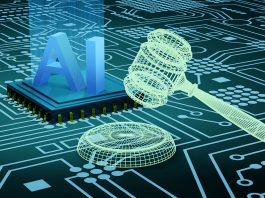Professor Haithem Marzouki, Director of Innovative Pedagogy at NEOMA Business School, discusses how AI technology is transforming educational experiences.
The business education sector has experienced a technological revolution in the last five years. COVID-19 resulted in a sharp rise in online learning, with many business schools investing in developing new programs for remote learners. Developments in generative AI technologies have also provided a host of new tools for professors to use in and outside the classroom.
Implementing these technologies is no easy task. Concerns have been raised that they could impinge on human-led teaching or that students could use them to complete written assignments. Strong communication is an important first step that should precede introducing new learning tools.
At NEOMA Business School, we have clearly seen Artificial Intelligence as a tool to enhance, not replace, human intelligence. In the classroom, AI assists faculty and students, but teaching and assessment methods are being restructured so that they cannot be aced by simply relying on the support of a tool like ChatGPT.
Part of this process involves placing a greater focus on experiential learning. For instance, creating AI-driven business simulations allows students to run virtual companies. They make decisions on a range of issues relating to marketing, production, HR, and finance, and AI tech simulates the consequences of their decisions. The result is an exercise that allows students to learn business strategies in an immersive yet risk-free environment.
In 2023, NEOMA launched a series of new ‘iLearning’ courses designed around this concept. The courses are for remote learners and are structured like a television series. The student is cast in a specific role, such as the Chief Digital Officer at a firm, and gains knowledge through making decisions, completing tasks, and offering analysis or recommendations depending on where their story takes them.
The chief benefit of this approach is that the student cannot be passive; they must interact with the course materials to progress. This is especially important in the context of remote learning, where business schools must be mindful that they are competing with a host of distractions to keep each student’s attention fixed on their learning.
Rise of the cyber teaching assistants
For students who are physically present on campus, AI tech can be used to generate resources. Large Language Model AIs like ChatGPT can instantaneously process, summarise, and evaluate vast quantities of text.
They can be used to provide end-of-class quizzes to check knowledge, offer feedback on students’ written assignments, and even be leveraged as a debate partner during revision activities.
In finance classes, students can use AI tools for financial modelling and forecasting, helping students understand investment strategies, risk management, and financial planning.
In entrepreneurship courses, AI tools aid students in creating robust, data-driven business plans by providing market and competitor analysis. In HR management classes, AI tools can simulate various scenarios, allowing students to experiment with different management strategies.
In addition to generating resources, AI tech can be used to allocate them effectively and customise students’ learning paths by conducting regular performance assessments. Factoring in their learning pace and preferences, the AI can direct resources and faculty attention to students who need more support.
Creating a tailored learning experience
Business schools should consider developing AI-based chatbots or virtual tutors capable of providing students with instant help, explanations, and guidance. These AI assistants could be used to dispense customised advice and resources based on each student’s progress and specific obstacles.

AI should also be used to enhance automated feedback systems, delivering swift, tailored feedback on students’ work and assessments. The benefit of implementing AI in these systems is that it can be used to identify errors, elucidate them, and offer educational resources to address foundational concepts.
For instance, in 2020, Professor Laura Trinchera at NEOMA transformed her Statistics course into a blended learning format, utilising an AI tool called ALEKS. This AI system, developed by McGraw Hill Education, can quickly and accurately evaluate each student’s performance and provide a fully personalised learning experience.
ALEKS knows if and when a student is ready to progress to a new topic and uses this knowledge to make learning more efficient and effective by continually offering students a selection of topics they are sufficiently prepared to tackle. This builds the student’s learning momentum and confidence.
Embracing the revolutionary potential of AI tech
At the heart of how we introduce AI ‘assistants’ in classes is the principle that AI should help us create a learning experience that is fine-tuned to the individual needs of each student. In this way, we emphasise not what the technology can do but how it can help our students and professors perform to the best of their abilities.
To this end, implementing generative AI tech is not just enhancing educational experiences – it’s fundamentally transforming them.
As business schools adapt to and adopt these digital tools, the focus should remain on cultivating inclusive, stimulating, and dynamic educational environments. The future of education, driven by AI and technology, is not just a concept; it’s a rapidly unfolding reality.









